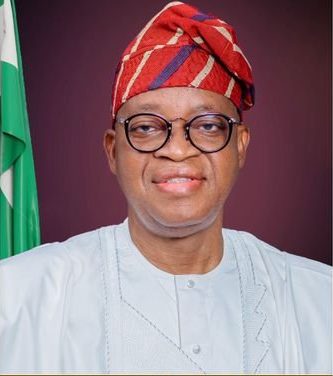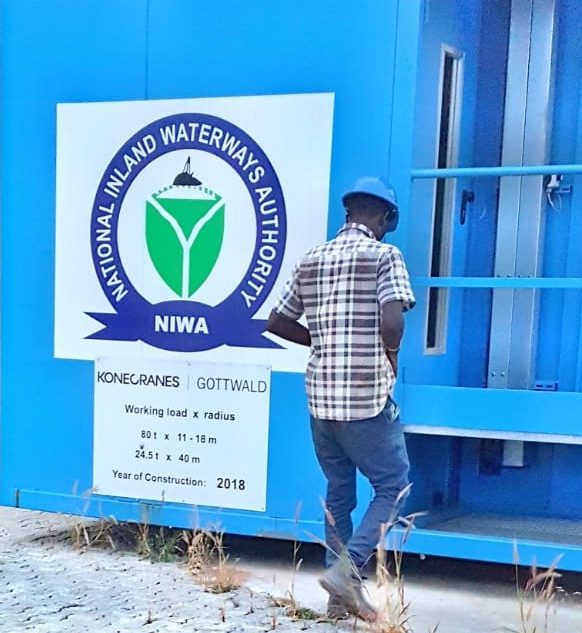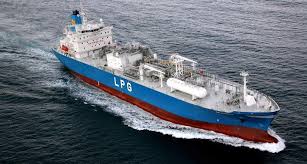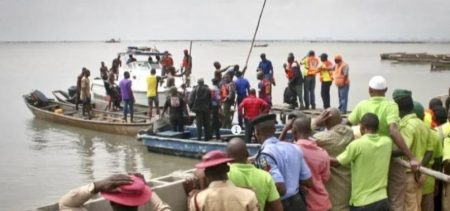
Esther Oritse
Lagos — Nigeria’s Minster of Marine and Blue Economy, Mr. Adegboyega Oyetola has said that safety on the nation’s territorial and coastal waterways is not merely a regulatory obligation, but a critical enabler of economic growth, trade, and investment.
Speaking at the ongoing Lagos International Maritime Week, Oyetola said that ensuring the safety of the nation’s waters is crucial to securing Africa’s economic future and unlocking the vast potential of the blue economy.
The Minister explained that the absence of safety and security will make businesses encounter heightened risks, operational disruptions, and diminished investor confidence.
Oyetola said: “Navigating the Future of Africa’s Marine and Blue Economy -Safety First, is especially significant because safety remains the cornerstone upon which all maritime operations and business success rest.
“In the maritime world, safety is not merely a regulatory obligation, it is a critical component and an enabler of economic growth, trade, and investment. Ensuring the safety of our waters is crucial for securing Africa’s economic future and unlocking the vast potential of the blue economy. In its absence, businesses encounter heightened risks, operational disruptions, and diminished investor confidence. However, when safety is prioritized, it fosters a secured and stable environment where commerce prospers, investments grow, and innovation thrives.
“This administration recognizes the compelling need for enhanced maritime security. Through key initiatives such as the Deep Blue Project, we have recorded a quantum leap in reducing maritime crimes, including piracy and smuggling, in Nigerian waters and across the Gulf of Guinea.
“This has made our maritime space safer and more conducive for businesses, and resulting in improved throughput, and enhanced efficiency. As safety improves, businesses flourish, and trade becomes more reliable. The significance of this conference theme goes beyond immediate concerns of crime reduction. A safe maritime environment has far-reaching implications for trade, especially intra-African trade, which holds enormous potential for regional economic integration and growth. By ensuring the safety of our waters, we open new shipping routes, strengthen logistics networks, and expand the flow of goods across the continent. This, in turn, promotes trade facilitation, increases cargo throughput, and elevates Africa’s competitiveness in the global maritime space.
“In line with the Renewed Hope Agenda, this administration is fully committed to driving the modernization of our ports and maritime infrastructure. We understand that port efficiency and safety are not options; they are imperatives for unlocking the full potential of the blue economy. By upgrading our ports to global standards, we are positioning Nigeria and Africa to become leaders in international maritime trade, ensuring that our ports are gateways of prosperity, not bottlenecks.
“Equally important is the need to provide a robust legal and regulatory framework that fosters investor confidence and protects the interests of stakeholders. Government is currently revisiting our maritime laws to align them with international best practices. By focusing on transparency, effective dispute resolution, and arbitration, we aim to create a business environment where investors feel secure, and where maritime operations can flourish without unnecessary legal or operational bottlenecks.
“In the pursuit of greater economic benefits from the blue economy, it is crucial to remain mindful of the importance of environmental sustainability. Government policies are designed to strike this balance by promoting sustainable fishing practices, conserving marine biodiversity, and mitigating marine pollution. These measures are vital for ensuring that the future of Africa’s maritime industry remains both economically prosperous and environmentally responsible.
“Through initiatives like the Deep Blue Project and the port modernization efforts, we are laying the groundwork for a maritime sector that can fully support the growth of intra-African trade. By ensuring that the waters remain secure, we are creating an ecosystem in which businesses can thrive, jobs can be created, and economies can grow. This is the foundation upon which the blue economy will flourish, driving Africa’s economic transformation and global competitiveness.
“However, this vision cannot be achieved in isolation. The success of Africa’s maritime and blue economy depends on collaboration between governments, the private sector, and international partners. The Safety First approach is not only a national priority but a shared responsibility.
I call on all stakeholders to take ownership of this goal. Let us work together to ensure the safety of our waters, the security of our businesses, and a prosperous future for all.
“The future of Africa’s blue economy is filled with promise, but it requires our ongoing commitment to safety and security. By prioritizing safety, we unlock the true potential of our maritime resources, ensuring long-term growth, trade, and investment for generations to come.”
Speaking in similar vein, Convener of the Lagos International Maritime Week, Mrs. Tosan Edodo-Emore said that safety is key to the actualization of Africa’s blue economy noting that the introduction of new technologies, the use of alternative fuels and digitalization has had a significant effect on shipping worldwide.
“With the establishment of the Ministry of Marine and Blue economy by the present administration, Nigeria now possesses the impetus to focus on the development of her blue economy. Maritime safety and security is key to this development.” Emore stated



